The Third Option likes Andrew Yang’s calm Certainty, simple Inclusive rhetoric, and Fair Sustainable solutions—plus he knows Dave Chappelle. All Americans should hear him out.
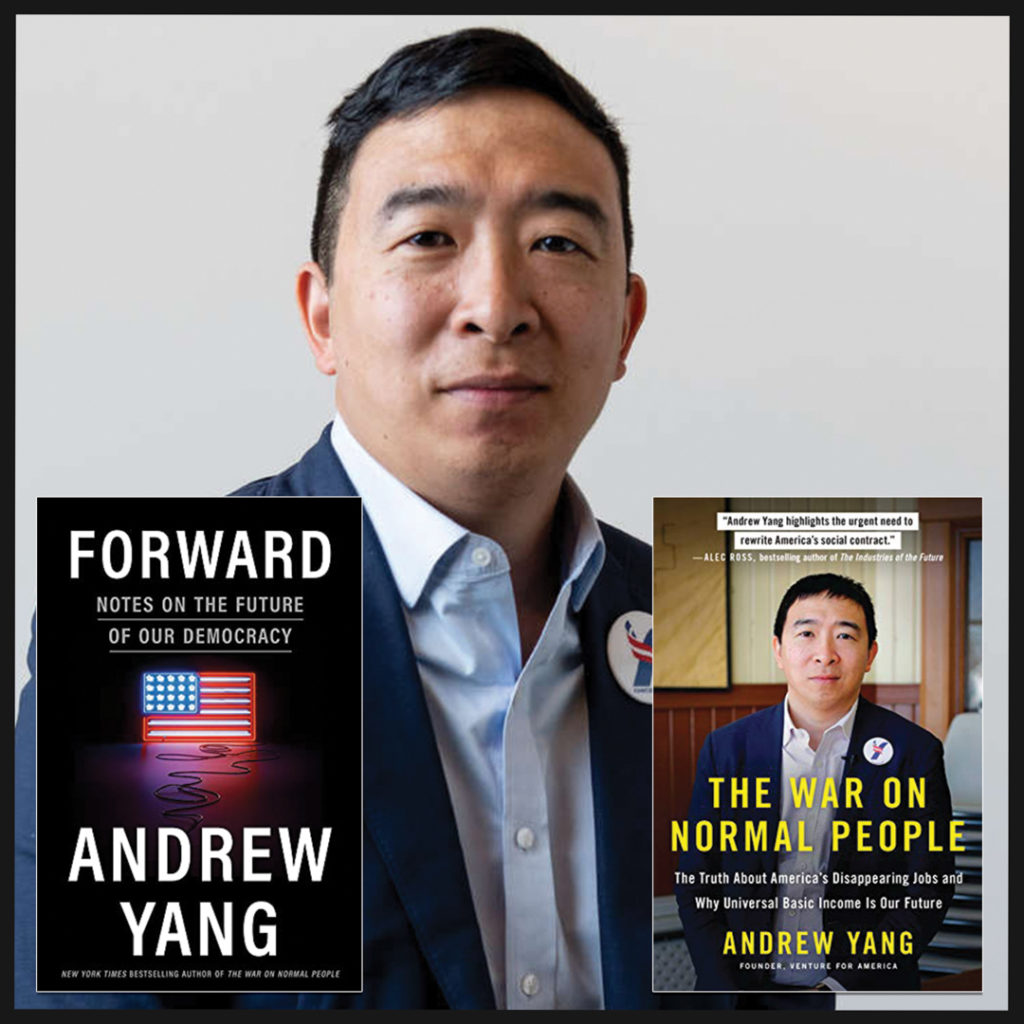
By Robert Simmons
There is no reason for us to accept a future that we don’t want.
Andrew Yang
Table Of Contents
Andrew Yang and The Third Option have been moving along an ideological path best described as a perfect mirror trajectory; perhaps The Third Option is the Yin to Andrew’s Yang. We both rose from the ashes of the 2016 presidential race, and both preached that it was time for a new direction: forward. The Third Option has so far operated in the shadows, Andrew in the light. We both are looking at the same data; Andrew seeks solutions to the surface disruptions the data has identified, while The Third Option has gone underground, in order to dig to the root of these disruptions, where we found that they all emanate from a single root source. Andrew hopes for us to dodge the future that is unfolding. The Third Option hopes to create a model for the future into which everyone can safely step. Combined, Andrew and The Third Option form a balanced whole. Here are some of Andrew’s ideas.
Rewire Government
Andrew’s Take
The will of the people and our government’s legislative process are no longer bound together.
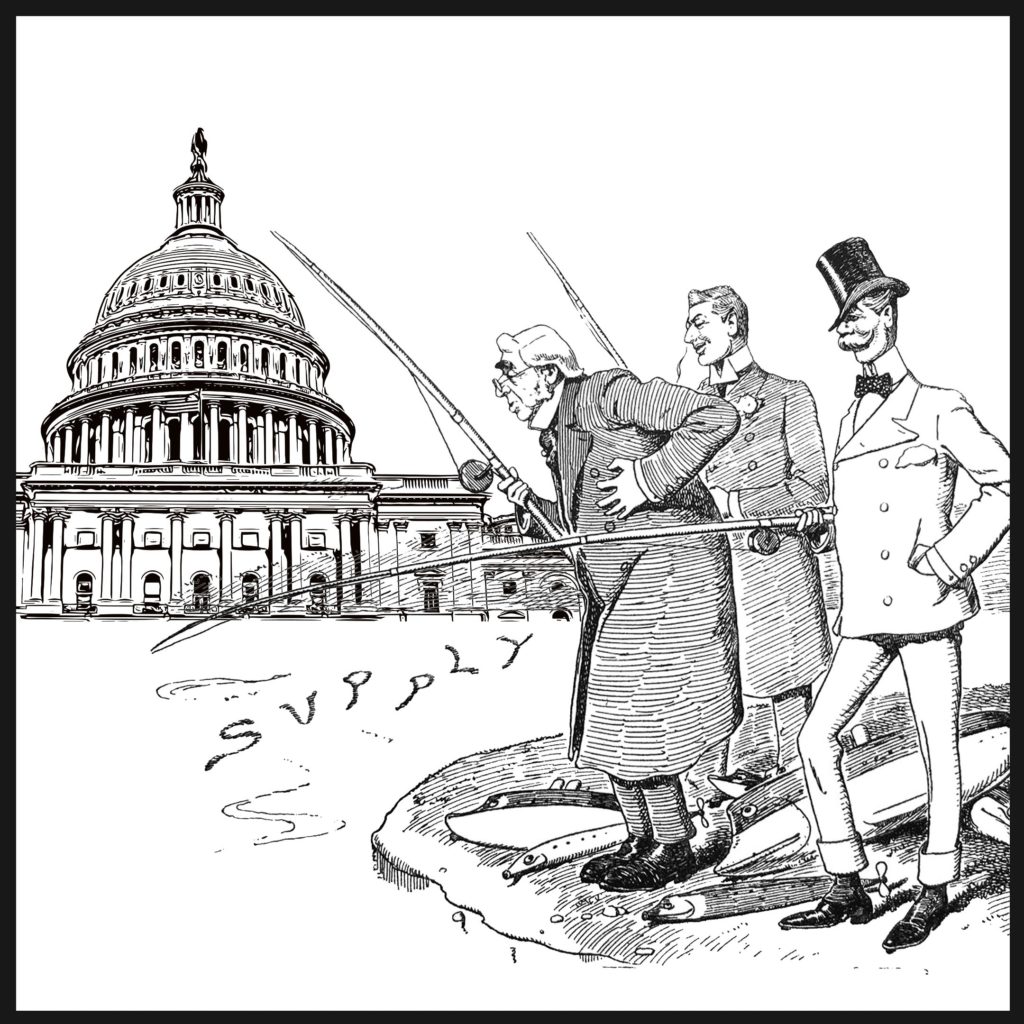
No ‘interest group’ is currently fighting for ways to make politics fair or more workable, because those in power have no incentive for the rules to change. Candidates need money to compete, which “allows wealthy donors, corporate lobbyists, and interest groups who donate to have massive influence.” The wealthy give exponentially more to make sure change does not happen.
“Congress is being governed by people who won elections in the ’80s and ’90s…There are a lot of egos to navigate; more than half of the members of Congress are millionaires. No one wants to hear your ideas. You are told to settle in and fundraise in the hopes of working your way up toward an important committee seat…in about eight years…You get reminded daily that you are up for reelection the following year. It’s time to get yourself a million-dollar moat to make sure that you are able to defend your seat…There are cubicles in party headquarters set aside for you to “dial for dollars.”
Money in politics gets a great return on investment (ROI)—votes, not so much.
Katherine Gehl, Michael Porter
Raise money and get re-elected, which also takes money; those are the two main jobs of our congressional representatives. You can dial for the dollars, or simply take the money that walks straight through your office door every day. “Approximately $6.4 billion was spent on lobbying Congress and government agencies by companies, trade associations, unions, and other special interest groups during the 2016 election cycle alone. Your office is constantly swamped by lobbyists and your schedule is filled with events organized by various firms that put money into your coffers in return for you politely listening to industry representatives with a policy recommendation.”
Andrew has joked that he is “the people’s lobbyist,” but he also knows that to change the system, one must unfortunately go through the system, and invariably be consumed by it. “We have become a whole network of people bullshitting each other into believing that smart people are thinking about it and good things are happening that will address the problems. And then we all just go back to whatever we were doing. Government is largely about this kind of theater.” Actors are hired to perform for whatever audience shows up; currently, the middle 60% of America has turned the channel; only the 20% on either extreme is constantly ‘tuned in’ and this is why the politics must be polarized, to reflect this more edgy audience, who came to see a fight.
The system knows how to keep its enemies close. Those who enter with ideas about changing the system wind up many years later being honored for their effort at some fundraising event, complete with a photo op; maybe there’s a consulting job waiting. If you need to be seen, and people like seeing you, perhaps a deal can be struck with the media. The sky’s the limit: you could procure a book deal, be touted as an ‘expert’ at something, or even become a ‘public intellectual’—all for attempting to promote some change that will never happen. In a way, these political soldiers are no different than our military, sent off to die alone on some hill, while the rest of us watch on television, or perhaps don’t tune in at all; who can blame them for ultimately deciding to save themselves.
I’m seeing all of these campaign ads right now, and everyone’s saying, ‘I’m going to do this, I’m going to do that’…No you’re not. You’re not going to do that, because you have no power to do it. The system is not designed to allow you to do that.
former Michigan congressman Justin Amash, just before leaving office
And thus the unwinnable war predictably plays out. Down on the House and Senate floor, these soldiers of fortune huddle safely in their designated trenches; if the majority attempts to advance any legislation, minority snipers are quick to kill it. “Since the 1990s there has been an informal rule in the House enforced by several Speakers—the Hastert Rule—that a bill can only be voted on if it has the majority support of the majority party. This means that even if…the majority support a bill proposed by the minority party, it will never be brought to the floor. If you are in the minority party, you know you will likely never get a vote on anything you put forward.”
Solutions
If someone has a cut, a band aid is an excellent solution. If someone has many cuts —because they are cutting themselves—this is a complex issue, and a box full of band aids will not be enough. Putting band aids on societal problems will only hide them out of sight, while they continue to fester. Because the focus in our society is not on people, band aids are all we have in stock for them. In our current societal arrangement, people are really no different than band aids: there are plenty of people in stock, and when one goes bad, we just throw it away and get another one. When maximizing profit is the bottom line, salvaging people or band aids is simply not cost-effective.
Andrew likes data because it lumps seemingly isolated ‘cuts’ into a pattern of cutting that reveals where the true issue lies. Once a successful diagnosis is made, very rarely is a single ‘pill’ going to cure it; multiple treatments will be needed to successfully facilitate the healing process. Andrew recommends the following series of treatments, which must be taken together in order to successfully heal our damaged political process:
- Open Primaries
- Rank-Choice Voting
- Democracy Dollars
- Term Limits
- Fact-Based Governance (American Scorecard)
- Other Strategies for Getting Laws Passed
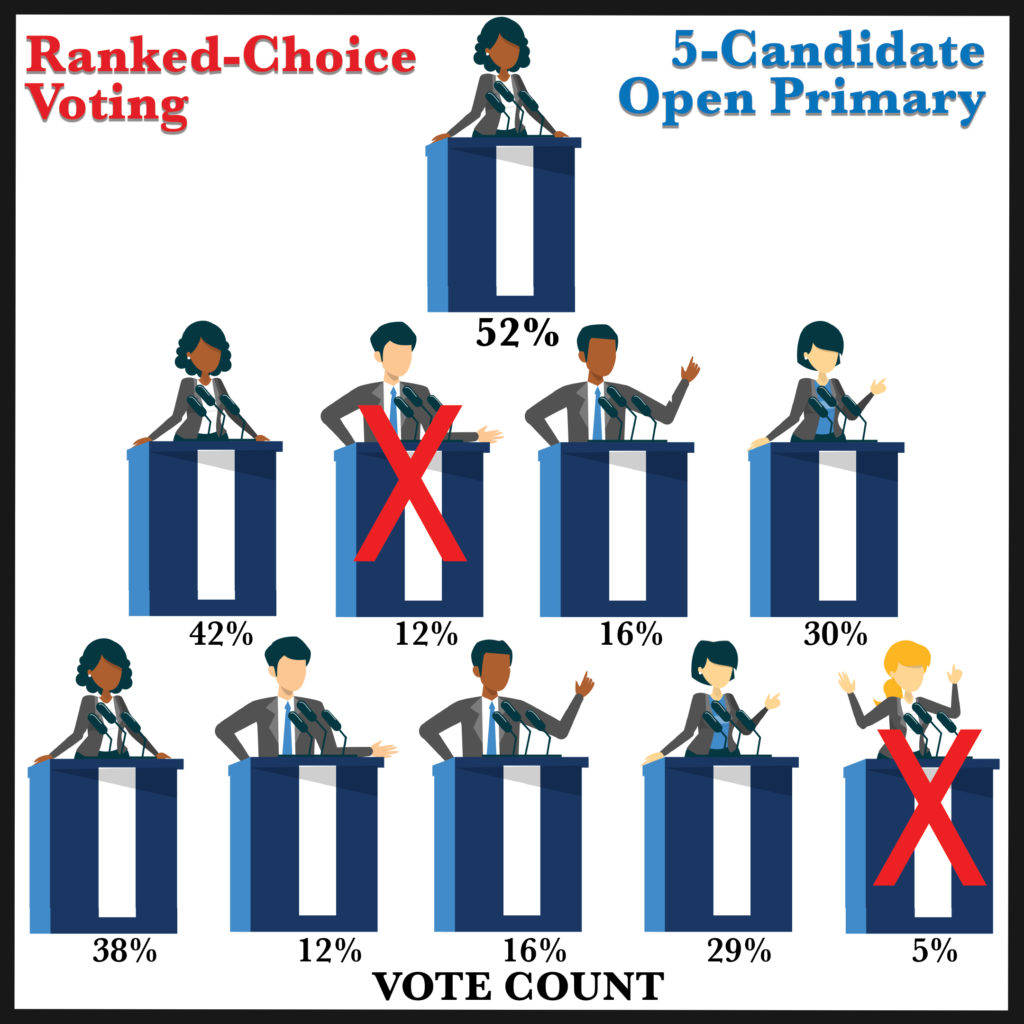
Treatment #1: Open Primaries
Historically, the incumbent in any political race has a 90 to 95% chance of winning again. “More than 80 percent of congressional districts are considered “safe” seats; they are either clearly Republican or clearly Democratic.” In a two-party political battleground, incumbents best not stray in the ‘neutral zone’ of middle ground thinking, lest they get picked off by the ‘friendly fire’ of their own party. As Andrew asserts, incumbents “are more worried about being challenged in the primaries than in the general election” by more extreme members of their own party (about 20% of both parties are a combination of extreme and vigilant, ready to jump on any chance to assert their fringe agendas, should their party grow ‘soft’).
When our representatives have been enlisted to fight for extremists, clear lines are drawn and politics becomes war by other means. To break up this political trench warfare, Andrew and others advocate for open primaries.
In their book The Politics Industry, “Katherine Gehl and Michael Porter propose a system where party primaries are replaced by a top-five primary that is open to all voters. Candidates could identify themselves with a party or not. The top-five finishers would then go on to the general election.”
Andrew figures that the current two-party primary mechanism leaves nearly 80% of voters out of the democratic process; they effectively have no input at all. Opening up primary elections to many solution-driven candidates makes it harder for anyone to receive votes simply by flashing a campaign button.
Treatment #2: Ranked-Choice Voting
With more open primaries, rank-choice voting becomes crucial, so the top two candidates—who hold similar beliefs— do not split votes and allow some 3rd choice to sneak past them. In ranked-choice voting, each voter would rank all prospective candidates from #1 on down the line. If a candidate receives more than 50 percent of first-choice votes, they would automatically the winner; “that makes sense; anyone who gets more than 50 percent would win under any system. If no one breaks 50 percent, then the least popular candidate—the one who got the fewest 1s—is discarded, and that candidate’s voters get reassigned to their second choice. You continue this process until a candidate gets over 50 percent, and that candidate is the winner.”
The benefits of ranked-choice voting are profound. You don’t need to worry about any candidate being a spoiler. You can vote however you’d like without worrying about “wasting” a vote. It expresses voter preferences better…It diminishes the incentives to campaign negatively, because you’re running against multiple opponents and people will notice if you start trashing your opponents. And it favors coalition building and reaching out to different types of constituents.
Forward: Notes on the Future of Our Democracy
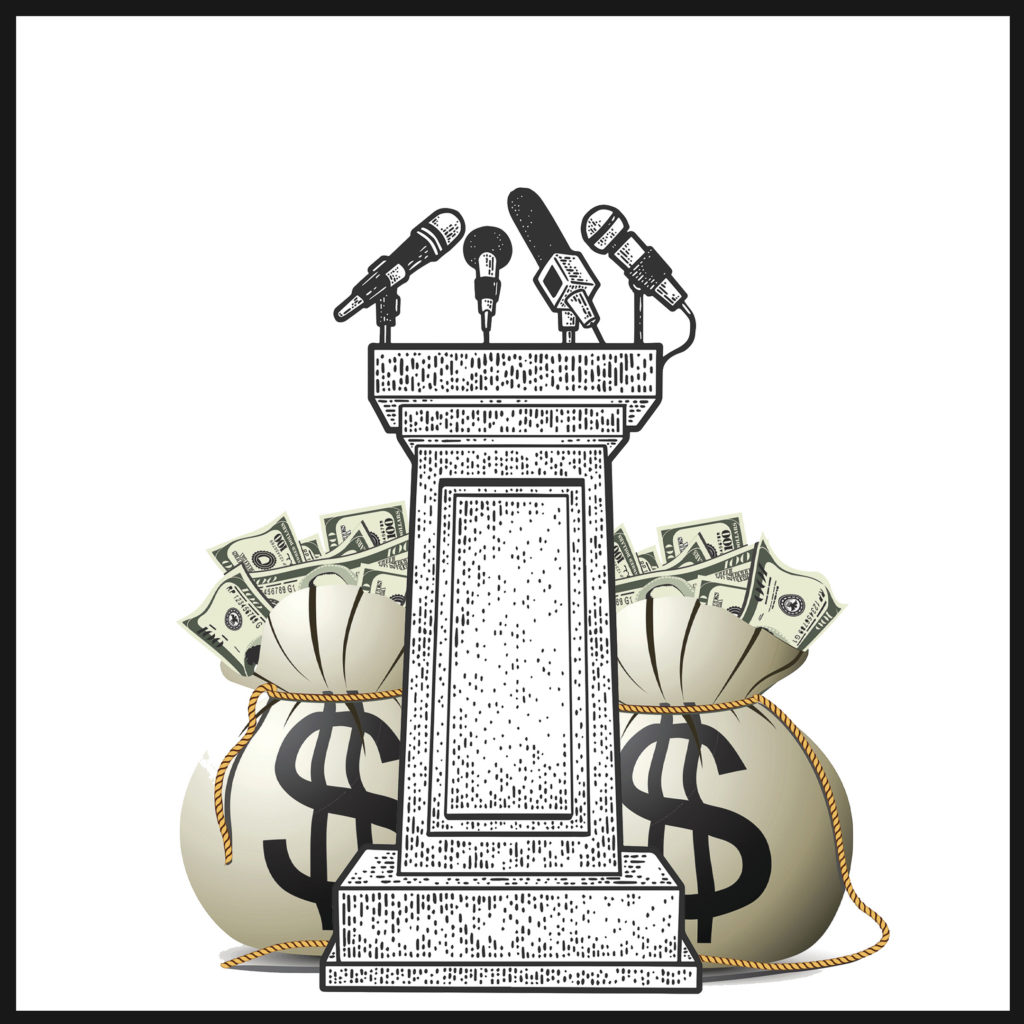
Treatment #3: Democracy Dollars
“Issue a hundred “democracy dollars” to every registered voter that they could give to any candidate they can vote for in a given year. They are “use it or lose it”: if you don’t use them, they simply expire. There are presently 250 million voting-age adults in the United States. If only 20 percent of eligible voters allocated their $100 to given candidates in an election cycle, that would be $5 billion, enough to counterbalance all the money that is currently being sourced by companies and special interests. If a congressional candidate got ten thousand people excited, he or she would get $1 million, enough to be competitive.”
Seattle experimented with this concept during their 2016 local elections, allowing residents to break their $100 donations up into four $25 increments. It made residents feel they were “more a part of the system.”
New York and Maine have had similar plans, usually tied to the idea that if candidates forswear taking private money, the state would gladly be their source of funding; anything to combat special interest money from sabotaging the democratic process.
Treatment #4: Term Limits on Congress
“In one poll, 82 percent of voters agreed with the statement “Members of Congress stay in office too long.” By one measure, 74 percent of registered voters support term limits for members of Congress.” —Andrew Yang, Forward
Legislative measures to limit the number of terms for congressional members have fallen short in the past. In 1995, “the House of Representatives passed a bill 227–204 to impose term limits of twelve years—six terms—in the House and twelve years [two terms] in the Senate. This fell short of the two-thirds they needed to pass a constitutional amendment.”
Currently, representatives must wait their turn, fundraise, and keep their job long enough to eventually ride in the front seat of a political vehicle that mostly remains parked out on the White House lawn, going nowhere. Andrew advocates instead for a limit of 18 years for both house and senate seats (9 terms and 3 terms, respectively); easily enough time to learn the ropes and have a puncher’s chance of delivering significant wins for the American people. The best fighters could stick around for 36 years if they so choose, plus potentially do 8 more years as president. Andrew believes that a term limit bill would pass if current legislators were exempt from it, meaning that the law would only take effect for any new legislators coming into office.
Term limits are also something former representative Beto O’Rourke has championed. Yang, O’Rourke, A.O.C., Justin Amash, Cory Booker, Tulsi Gabbard, Stacey Abrams (and countless others) are all superstar point-guards that could lead any team, but are forced to ride the bench until the ‘old guard’ retires. It is hard to get playing time when there are only two teams, privately owned, where the owners make more money if nobody wins.
Treatment #5: Fact Based Governance
“Governing based on facts —and having those facts recognized by all parties.”— Andrew Yang
The media measures success by GDP, economic growth, quarterly stock performance, and the like. Andrew would like to set more people-based goals, based on measurements of “life expectancy, average income and affordability, childhood success rates, mental health, freedom from substance abuse/deaths of despair, environmental sustainability, quality of infrastructure, social mobility, incarceration and rehabilitation rates, public trust, arts and culture, and civic engagement,” which have all “been trending negatively for years. Reversing these declines should be the point of public service and the purpose of politics, policy, and government.” Understanding that some citizens will still desire profits over people, Andrew is willing to include “GDP growth, rates of entrepreneurship and small business starts, labor force participation rate, efficiency of public resources, military readiness, global perception of the United States, crime rates, marriage rates and proportion of children in a two-parent household, volunteerism, and philanthropy.”
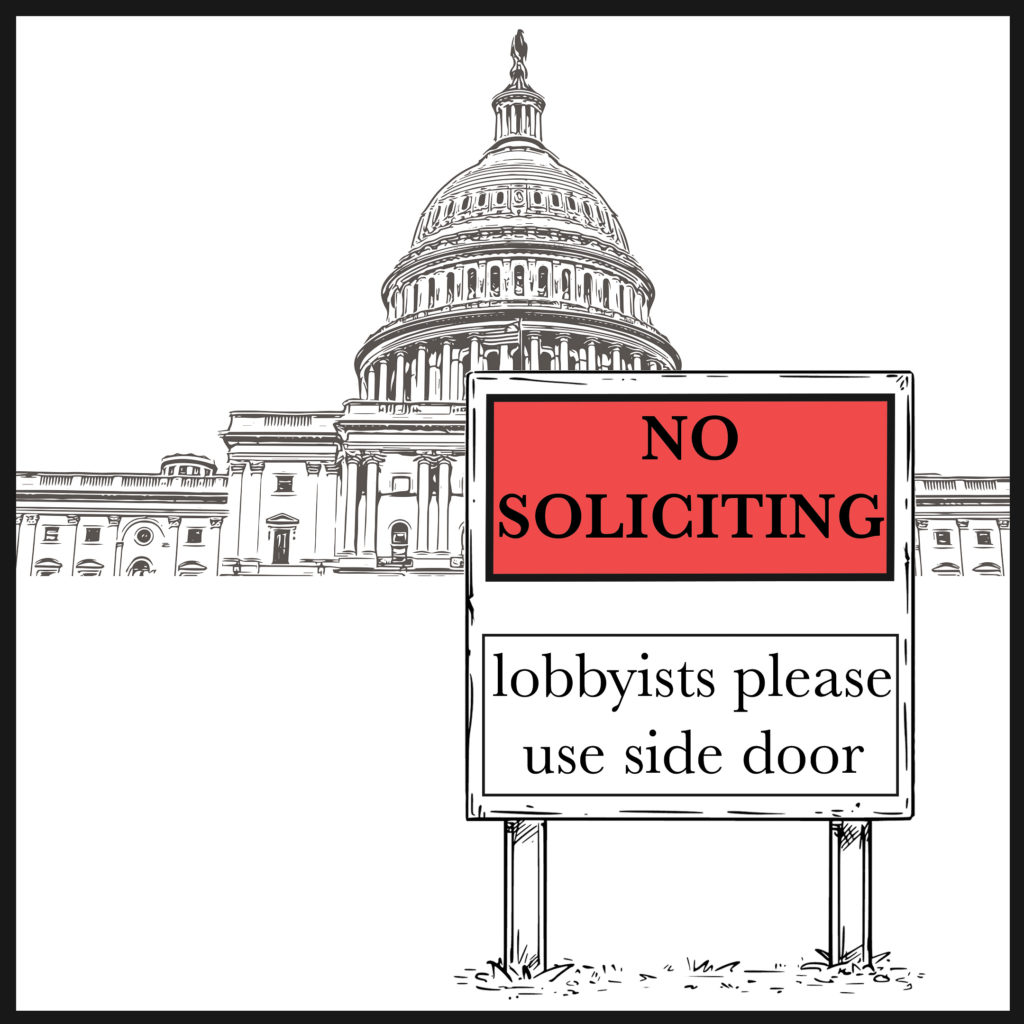
Treatment #6: Get some Legislation Passed
Once these other ‘treatments’ are in place, it would still behoove us to encourage our representatives to pass some laws, a floor routine where Congress has failed to stick the landing so many times, it will likely need to hire a sports psychologist. Here are some rule changes that Andrew feels will encourage legislative success:
- Restore ‘earmarks’ (and rename it ‘congressionally-directed spending’): earmarked funds have often been equated with ‘pork barrel’ legislation, because this money has been used to entice votes, by offering specific funding for a representative’s district in exchange for their support on some larger bill. Even so, Andrew wants to make sure our minority members are capable of helping their constituents with such money, as the majority party will surely shut down any legislation proposed by them individually. In the ‘Bizarro World’ of politics, it is the alleged ‘merit-based or competitive funds allocation process’ which is in fact power-based and thus ultimately non-competitive.
- Abolish the ‘filibuster’: There is nothing in the Constitution about the Senate needing to get to 60 votes in order to pass legislation. It is arbitrary. One party ‘installed it.’ It needs to be ‘un-installed.’
- Place a ban on lobbying: 42% of “retiring members of Congress between 2009 and 2015” became lobbyists. Another 25% “took a position at a company involved in lobbying.” Legislators have a job waiting for them that pays a lot better than their government job, and this creates a conflict of interest for people in office; it is difficult to go against powerful interests at the same time they are offering you a high-paying job offer down the road. Andrew wants to ban government officials from becoming lobbyists, but would instead pay them a $100k stipend to work in some academic or non-profit position for 10 years, plus pay them more for their services while in government office ($174k a year is what they currently receive).
Third Option Take:
The Third Option does believe that if we create a more healthy government ‘environment’, our representatives would adapt accordingly, and their ‘politics’ would in turn grow more healthy. As always, The Third Option will only choose solutions that Empower, never Control. As top-down solutions always ultimately force Control, The Third Option tries to dig down to the root of each issue, in order to fix the problem at its source.
Money is the root problem in politics. As we have seen, it is difficult to Control what people do with their money, once they get it. The Third Option suggests we instead control the money at its source, rather than waste time and tax money trying to put the ‘genie back in the bottle’ once we’ve already popped the cork. A National Public Bank would take in money electronically, and before anyone can get their human hands on it, distribute it back equally to every community, through their local public bank branch. If a community wanted to build a road or a bridge badly enough, it would need to build it using a public bank loan, ‘hire’ the proper management, employ constituents to do the job, and utilize the community to pay back the loan –at 4% interest—through revenue like fuel taxes, tolls, driver registration, ‘user’ fees (for Uber / Lyft or other public transportation), etc. (The Third Option has other payment options, should the plan become nationally implemented).
The National Bank would also build a national communication grid, which would connect people together within their community, as well as connect communities to each other. Demographically, communities constitute groups of 100,000 people. Congressional districts average 710,000 people, or seven communities. At the community level, Andrew’s plan for open primaries and ranked-choice voting would be easily facilitated without needing any extra Democracy Dollars, as the new communication grid –apart from driving new Universal Health Care, education, and money allocation—would handle all civic engagement, in order to best find and solve problems based on each community’s specific needs. Voting could be accomplished online, as well as campaigning, with each potential candidate getting equal time online to present their plans for improving their community. Politics would mostly involve money allocation directed toward community development, making politicians ‘managers’ more than ‘truth-sellers.’
In the Art of War, it is important to identify the enemy, its weaknesses and its strengths. We believe the enemy of people is the system itself, which pits us against each other in a never-ending cage fight that only benefits the owners of the cage. We need to starve the enemy, not feed it, and it most definitely thrives off of ‘Capital’. We must be careful not to dismantle the house of oppressors by using their tools, however, or we only perpetuate the oppression, ironically by becoming their successors.
Make Capitalism More ‘Human-Centered’
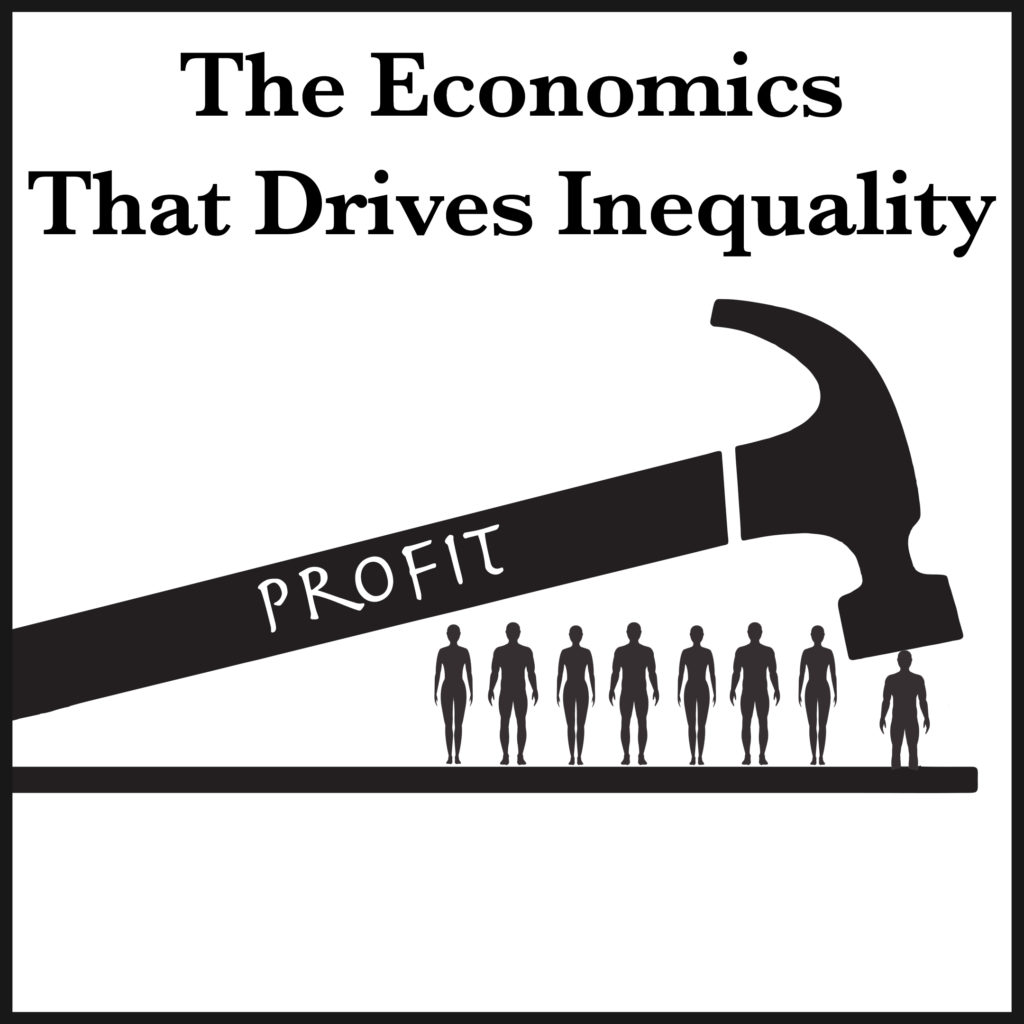
Andrew’s Take:
I had been trained to think that the economy and the market could improve people’s lives if you could get people the right resources and instill in them certain skills. But that approach had started to feel hollow after traveling the Midwest and the South for six years. Walking through some of those towns opened my eyes…Four million manufacturing jobs had been eliminated in recent years, and I realized that what I saw in the Midwest and the South was the new normal…What happened to those millions of manufacturing jobs would soon happen to retail jobs, call center jobs, trucking jobs, and on and on through the economy…The rules of the economy would need to be rewritten. And the only way to do that would be through the federal government, the only entity with the power to reconfigure a $22 trillion economy that had turned its back on millions of Americans. That required running for president.
Andrew Yang, Forward
Andrew is a “solutions guy;” he performs data-driven diagnostics and offers relevant solutions. He points to the inverse relation between record high GDP and record highs in financial insecurity, student debt, anxiety and depression, suicides and drug overdoses, health care costs, and global temperatures. The Social Progress Index (Imperative) ranks us in the thirties for basic needs like education, drinking water, traffic fatalities, childbirth rates, homicide rates, etc. Yang calls these “pre-existing conditions” that depressed our immunity to the coronavirus and debilitated our body politic even further.
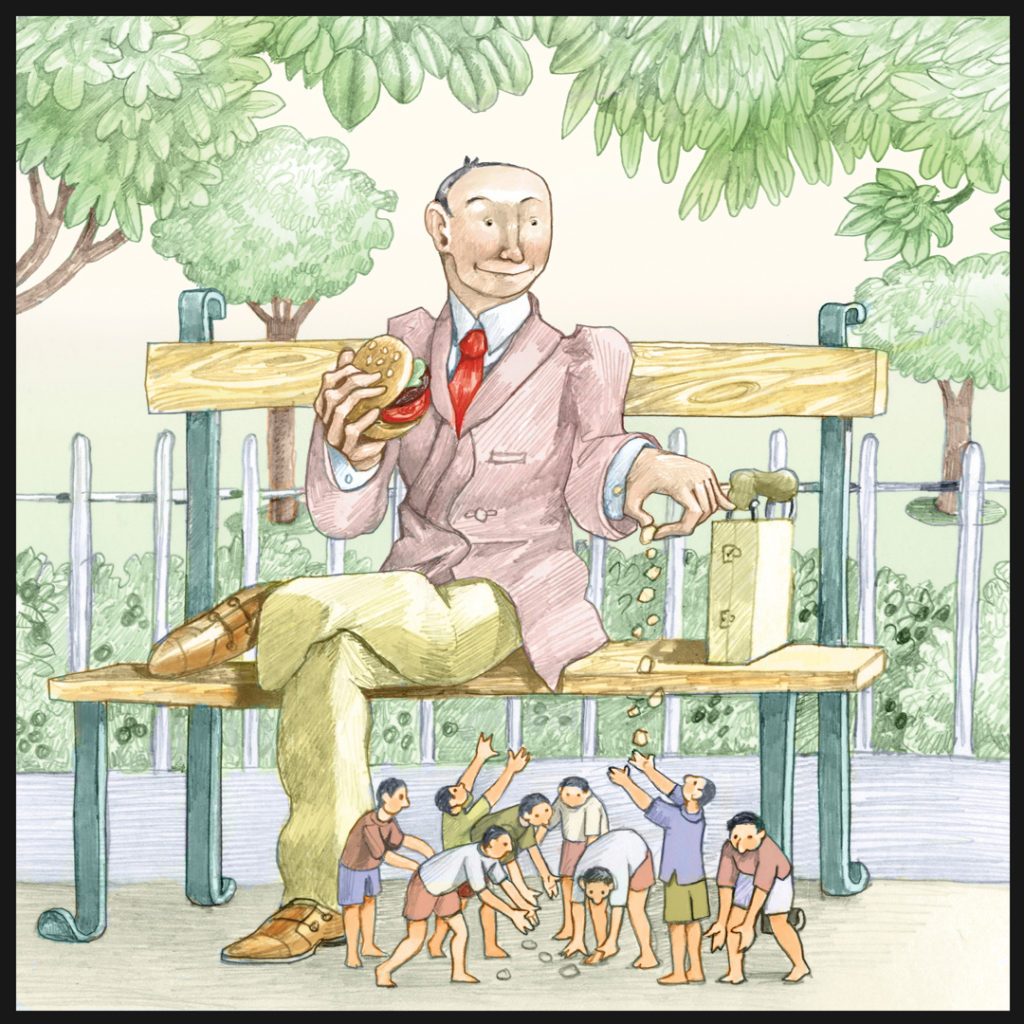
The displaced were among the least equipped to manage a financial shock. Retail workers, bartenders, personal trainers, cruise ship workers, tour bus operators, hotel employees, nail stylists, hairdressers, servers, cooks, taxi drivers, security guards, food truck operators, musicians, stagehands, car rental agents, and many other workers were barely getting by before the pandemic.
Andrew Yang
When the ship is sinking, it seems reasonable to begin jettisoning the dead weight in the hull in order for those on deck to remain afloat. The pandemic only gave the always-present externalities of the “inhuman economy” more attention, as the media were forced to produce daily stories about the pandemic in order to make a buck. Once they ran out of stories about the disease, and who was to blame for it, and how it affected economic growth, the stock market, and consumerism in general, they eventually had to start talking about the average citizen. Look in any health-related literature, and one can find the following data:
People who are unemployed for six months or more are likely to become unattached from the workforce entirely. This results in an increase in smoking, drinking, drug use, depression, domestic violence, child abuse, suicides, violent crimes, disability, and on and on. People who drop out tend to atrophy as communities disintegrate and opportunities disappear. You can see this clearly in postindustrial towns like Youngstown, Ohio, and Gary, Indiana, and Camden, New Jersey, all of which suffer from high crime rates. Social ills will surge everywhere.
Andrew Yang, Forward
Andrew’s diagnostic, as usual, is spot on: “we are in the midst of the most extreme winner-take-all economy in the history of the world. This disparity might be more tolerable for the average American if costs were stable even as their income and buying power stagnate. However, costs have ballooned for the foundations of American life—education, healthcare, and housing costs have gone up and up, even as buying power hasn’t kept pace… This is why the average American felt increasingly beleaguered, miserable, and left behind even before the pandemic.
Andrew Yang, Forward
Solutions
Andrew proposes “an evolution of our current system of corporate capitalism to one that I call human-centered capitalism, or human capitalism for short. Human capitalism has three core tenets:
- Humanity is more important than money.
- The unit of an economy is each person, not each dollar.
- Markets exist to serve our common goals and interests [meaning] we don’t exist to serve the economy. The economy exists to improve our way of life.”
Andrew’s “Human Capitalism” is “geared toward optimizing around human well-being in addition to GDP.” In order to implement the transition between the current economy and the one Andrew proposes, we would first need to implement a Universal Basic Income (UBI).
The “Freedom Dividend”
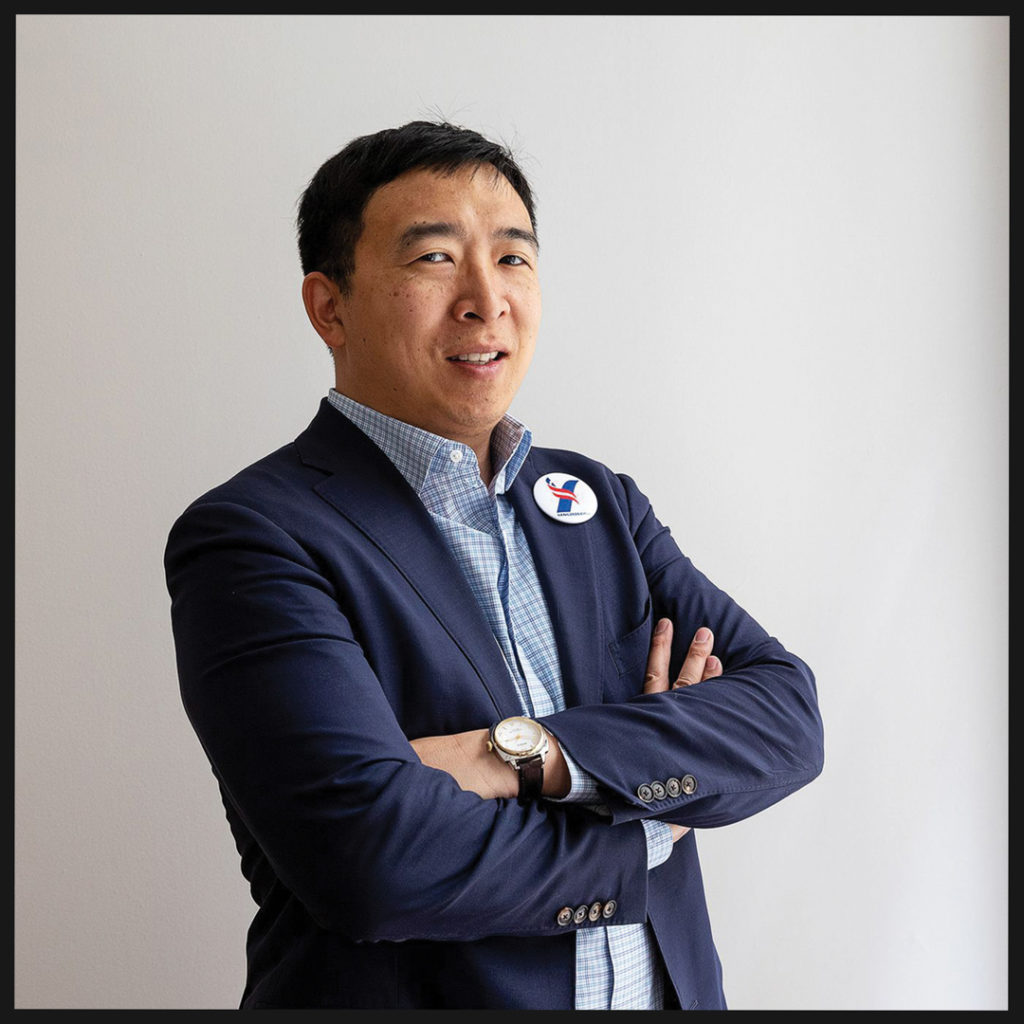
The idea of a Universal Basic Income was central to Andrew’s 2020 presidential run, and what set him apart from the other candidates. All adults would receive $1,000 a month ($12k per year), paid for through a value-added tax (VAT). “This will serve as an economic and social support for the transition and preserve our consumer market while we shift to a new economy.” Andrew also believes Americans need to start getting used to VATs because it “will be crucial to capture some of the gains of automation which typically accrue to sophisticated private firms.”
Andrew mentions large companies like Amazon, who pay next to nothing in taxes, but raked in $386 Billion in 2020. A value added tax of 10% would collect $38.6 billion, but like all value-added taxation, it would not affect Amazon. As a simple example, let us say someone made a widget for $10 to sell on Amazon, and Amazon sold it to us for $15. Overall, the federal government would collect $1.50 on some version of an income tax. On a value added tax, the maker would likely sell it to Amazon for $11, in order to still get $10. If Amazon also wished to retain $5 of profit from this item, they would need to charge us $16.50. Now, the widget maker would get their $10, Amazon their $5, and the consumer who ultimately buys the widget would supply the VAT of $1.50. Amazon cannot be gotten. Because they own the platform, which is basically an entire international marketplace, a brick-and-mortar business with many more costs cannot compete on prices, inventory, or delivery, allowing Amazon a little cushion to raise its prices without losing any of its customer base. People being creatures of habit, they would eventually not even care if Amazon prices were high; they would have long-since become addicted to receiving things on their doorstep.
Advocates of VATs claim that they raise government revenues without punishing the wealthy by charging them more through an income tax. Critics say that VATs place an undue economic burden on lower-income taxpayers.
Investopedia
This is not to discourage the concept of UBI, or VATs as a way of collecting money. The Third Option seeks to utilize a 10% Import Tax on all goods coming into the country. We actually seek to target American companies that have shipped all their jobs overseas, in order to utilize the cheaper labor. Adding 10% onto the value of American products made overseas is meant to get some of that money back, and if they were to raise the price to compensate, perhaps the American consumer would be less inclined to purchase it.
Depending on who is doing the math, total value of U.S. imports hovers somewhere between $2.5 trillion and $3.1 trillion. At 10%, this import tax could collect as much as $300 billion in a year, which would give $12,000 a year to 25 million adults. Currently, 38 million adults live below the poverty line in America (16.8 million men and 21.4 million women). The poverty line for a single individual is $12,880 in 2021. The Third Option did not really ‘earmark’ this money for any other specific project, so would certainly consider giving it over to help those out-of-work, as the whole purpose of the tax was to recoup money lost from moving American jobs overseas anyway.
The ‘Data Dividend Project’
In the new “surveillance capitalism” (coined by the Harvard professor Shoshana Zuboff) “our attention is being bought and sold…We are not the client or end user anymore; we are the product. Instead of having things sold to us, we are being sold to those with the means to buy access to every detail of our behavior and a financial interest to shape what we do next.”— Andrew Yang
“Data brokerage—the buying and selling of our information—is estimated to be a $200 billion industry. It’s a great high-margin way for a business to make some money on top of its traditional operation: just gather together customer data and sell it. You can sell it repeatedly because it’s not as if by selling it to one party, you make the data less valuable to the next party.”
Andrew began a “Data Dividend Project” for the American people to essentially get some intellectual property rights over their own data. “We should control our own data and destiny. It is not just about economics; it’s about our dignity, human agency, mental health, and the future of our democracy.”
Yahoo and Facebook were already facing large lawsuits over these very issues; Andrew was able to help with these causes, as well as jump onboard to get the California Privacy Rights Act passed. California customers could now get more control over their personal information, plus the legislation set a precedent that all the other states could follow.
Third Option Take:
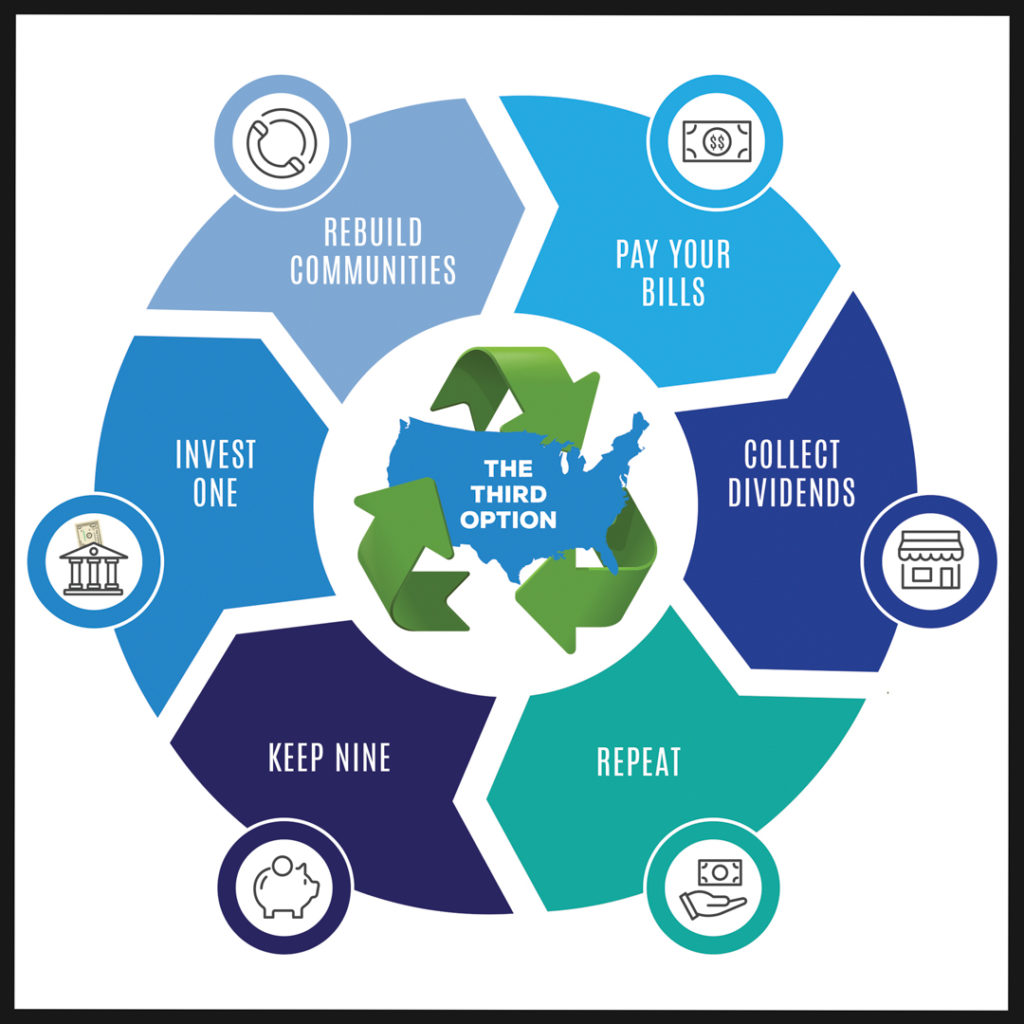
In Capitalism, the main unit of measurement is probably some form of capital; it’s not easy getting around that fact. In Democracy, the main unit of measurement is people, and not coincidentally, they each have the same value: one. Democratic math is as simple as it gets; people are not unequal because of Democracy, they are unequal because of Oppression, of which Capitalism is simply the latest form. Sorry, but Capitalism is designed to oppress people, just as a handgun is designed to kill people. Of course, whether people use Capitalism or handguns for these respective purposes is a matter of choice, but that choice is always clearly there for whoever wishes to ‘pull the trigger’ on it.
In ‘behavioral’ economics, economists attempt to utilize psychology to better understand how to manipulate consumers. In economic ‘psychology’, social scientists attempt to better understand how the effects of our economics lead to poor health outcomes for people. The trick is to somehow get Capitalism out of that anchoring (or ‘driver’s seat’) position; The Third Option was thinking ‘Economic Democracy’ has a nice ring to it.
Consistent Economic Growth of 4% is supposed to be pretty good. With all money cycling and recycling through a National Public Bank, the new unit of measurement would become effort, which would not scare Americans in the least, because down to every last one of us, all we do every day is give our best effort. Effort was never the problem; the problem is that some of our efforts have not been sufficiently compensated enough to financially sustain us. We believe if American effort is finally tied to financial gain, people would in fact double their effort. When someone had a good idea, no capitalist would even want to buy the idea out and shelve it, because each good idea ultimately makes all of us wealthier.
Andrew has a very important point: if fewer people work, because of the automation of lower wage jobs, we would get less income tax coming in. The Third Option plans to fund our National Bank through a flat 10% income tax (we prefer to call it an ‘income investment’) on gross revenue, meaning that if you make $10, you keep $9 and invest $1 in the National Bank. The Bank invests this for you, and when you retire, you wind up with a ‘retirement dividend’—meant to secure Social Security.
The point is that every citizen would contribute 10% of their gross revenue, and because the Supreme Court determined that corporations are people, too, a company like Amazon, that brings in gross revenue of $386 billion, would owe the Bank a $38.6 billion Income Investment. There is, however, one allowable deduction: payroll. Whatever Amazon pays to its workers could be deducted, because the National Bank could get this 10% Income Investment from them instead. It would be Amazon’s choice: automate or not. It’s a free country, allegedly.
The positive externality (yes, sometimes those do happen) is that the National Bank, because it rebuilds entire communities—housing, businesses, transportation, energy, communication, agriculture, water / sewer, health care, and education –drops the cost of living down to less than $1,200 a month, which is equal to a $15 an hour job performed about 20 hours / week. The Third Option advocates for a new 30-hour work week, so people would have plenty of spending money without having to slowly kill themselves to get it; for all you workaholics, though, The Third Option would have legislation in place for businesses to pay you ‘overtime’ (which now would be double) for any hour over 30 in a week, unless they simply want to pay you a salary of no less than $31,200, whereupon they are legally allowed to overwork you. At least your effort would be better rewarded.
Improve Communication
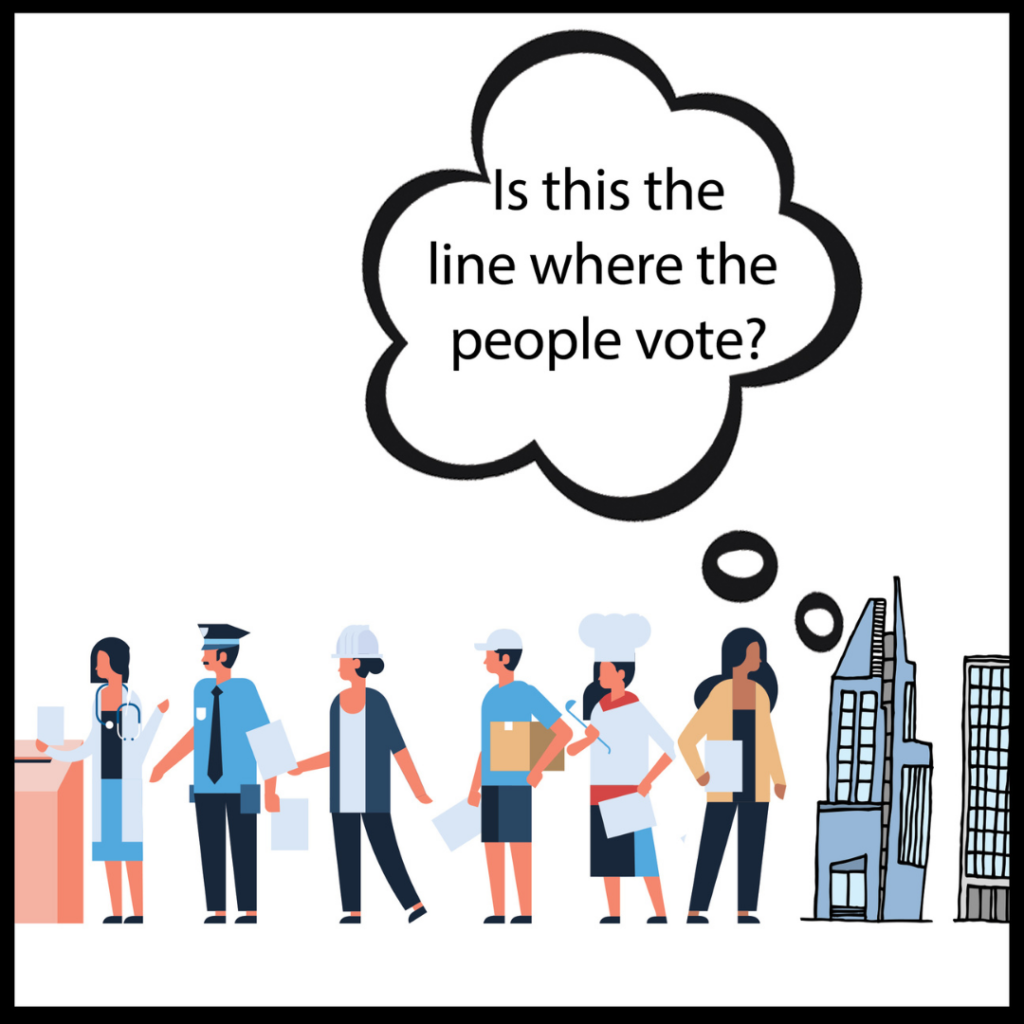
Andrew’s Take:
There are several interrelated problems with our media ecosystem, all of them having to do with the changing business models in journalism, and they each have devastating effects: Local journalism lost its revenue drivers and is dying. National media rewards polarizing punditry over substantive news. And social media platforms are driven toward ever more extreme sentiments and perspectives.
Andrew Yang
There are several interrelated problems with our media ecosystem, all of them having to do with the changing business models in journalism, and they each have devastating effects: Local journalism lost its revenue drivers and is dying. National media rewards polarizing punditry over substantive news. And social media platforms are driven toward ever more extreme sentiments and perspectives.
Andrew Yang
The ’creative destruction’ of Capitalism is hailed as one of its strengths, but as Andrew points out, by destroying local journalism, Capitalism is also destroying our sense of community. “We have been conditioned to think that if the market doesn’t place a positive value on something, then it ought not to exist. But there are a number of corrosive effects of not having a local paper. Local journalism is vital for a functioning democracy. A decline in local journalism has been linked to fewer candidates running for mayor and lower turnout in state and local elections…The other effect is that more voters simply vote along partisan lines.”—Andrew Yang
In his campaign travels, Andrew talked to citizens who confessed that when local news stopped hanging around, people were less accountable for what they did or said. Meanwhile, Equity Firms have been buying up 500 newspapers at a time; some tend to impart their own particular spin on things, in order to keep ratings high and draw advertising dollars. Predictably, facts take a hit. By Andrew’s calculations, ‘Fake News’ travels six times faster than truth. Unfortunately, the truth is not very exciting at times, while sensationalism triggers our emotions, which are apparently still six times more powerful than our intellect’s capacity to override them. Evolution is a slow process.
“The National Media…don’t just report on the news; they form it.” As Andrew rose up the charts of Democratic presidential hopefuls, the national media chose to not include his name on its ranking graphics. When reporting on various debates, they wouldn’t even mention he was there. If they did mention him, they got his name wrong, or described him as “the candidate of alt-right white supremacists.”
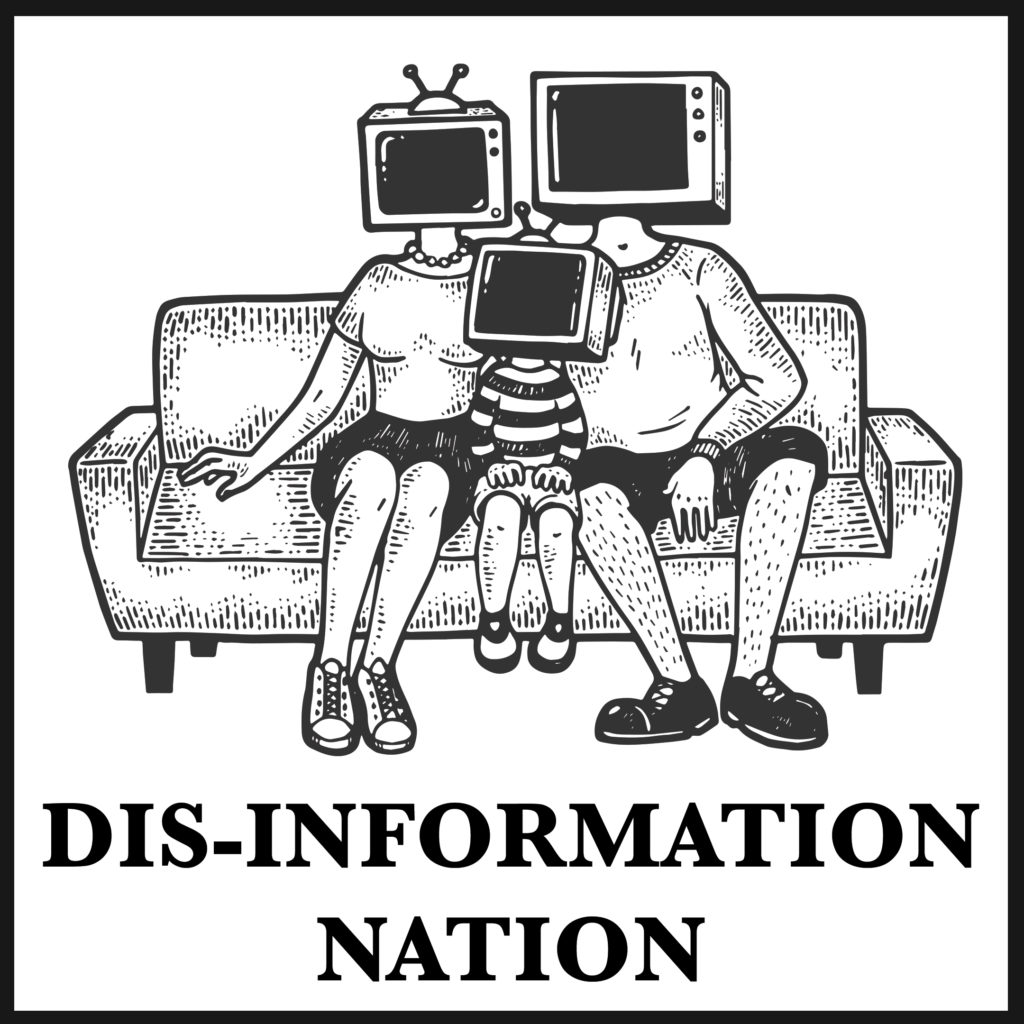
As Andrew gained popularity, the media of course wanted to include him as a free ‘asset’ who could drive his viewers to their product. As Andrew recounts in Forward, no one much cared about the serious things he tried to address; the media instead focused on him crying when a grief-stricken parent shared how her child had been killed by gun violence, or the time he did the ‘Cupid Shuffle’ with a middle-aged jazzercise group, or when he ‘crowd surfed’ over 100 of his fans. They liked him shooting a basketball, riding a skateboard, and giving away cash. These, of course, are great moments, and shows how adept the media is at manipulating both asset and consumer toward its own financial gain. There are some very clever people in the media who have found an economic purpose turning their empathy into a transferrable economic skill for the financial gain of media moguls.
We need a ‘common public reality.
Robinson Meyer, Atlantic
“The market is distorting our news in ways that are tearing us apart. The cable news networks are being rewarded via billions of dollars a year in revenue to separate us into ideological camps hungering for news and opinion designed to stimulate our sense of outrage and alarm…producers who are subject to microanalysis of their decisions based on fifteen-minute ratings, which are then tied to advertising, continued employment, and their professional advancement. There is no reason to think that these trends will reverse themselves; media companies are businesses that benefit from heightening our polarization and giving us news that affirms what we want to hear.”
People will always need to belong, and to communicate what they experience. Capitalism is strategically isolating, and it is no coincidence that social media has sprung out of this immense and nearly soul-destroying isolation. To be heard, validated, noticed, connected—all of us need attention, and some of us will even settle for negative attention—anything to affect some form of human reaction confirming our existence within the collective.
While we digitally interact, “the artificial intelligences of companies like Facebook (and Google) now include behavioral prediction engines that anticipate our thoughts and emotions, based on patterns found in the reservoir of data they have accumulated about users. Years of Likes, posts, shares, comments, and Groups have taught Facebook’s AI how to monopolize our attention. Thanks to all this data, Facebook can offer advertisers exceptionally high-quality targeting…Facebook has used surveillance to build giant profiles on every user…It starts out giving users “what they want,” but the algorithms are trained to nudge user attention in directions that Facebook wants…[T]he goal is behavior modification that makes advertising more valuable.” –Andrew Yang
Journalists, like economists (and many other professions), are perfectly married to the tenet of ‘creative destruction’—if their kind die off, then apparently they were not economically ‘fit’ enough. Andrew calls this “constructive institutionalism”—a blinding loyalty to economic Darwinism that is causing capitalists to adapt toward the most addictive, violent, fearful sides of our nature.
Solutions
Publicly Funded Journalism
NPR and PBS consistently rank among the most trusted news outlets. A 2017 survey found that they ranked number one and number two in the number of people who said they are “not biased at all.
Andrew Yang
Democracy, as philosopher Michael Sandel Media reminds us, requires that “citizens share in a common life.” Andrew feels we need a news source that is pure, like C-Span, that allows everyone access to the same information, in order for people to make up their own minds about what they witness, instead of media outlets continually tampering with the evidence.
As Billionaires create local ‘media deserts’ out of our communities, public funding has a space to step in and maintain democracy at the grassroots level. “The number of reporters has plummeted by 60 percent since 2000.” To keep citizens civically engaged, there must be some forum for them to matter.
RebuildLocalNews.org has got plans to save local news. One such plan involves endorsing a bipartisan Congressional bill “proposed by Democrat Rep. Ann Kirkpatrick of Arizona and Republican Dan Newhouse of Washington” called the Local Journalism Sustainability Act, which would offer a $250 refundable tax credit for each person buying a local news subscription, and a $5000 credit for small businesses to buy local news advertising, among other things. Meanwhile, Andrew would like to see Congress create a “J Corp” tax classification for original local journalism, and feels we need to do this soon, while there are still local papers in place to salvage.
Depolarize Cable News
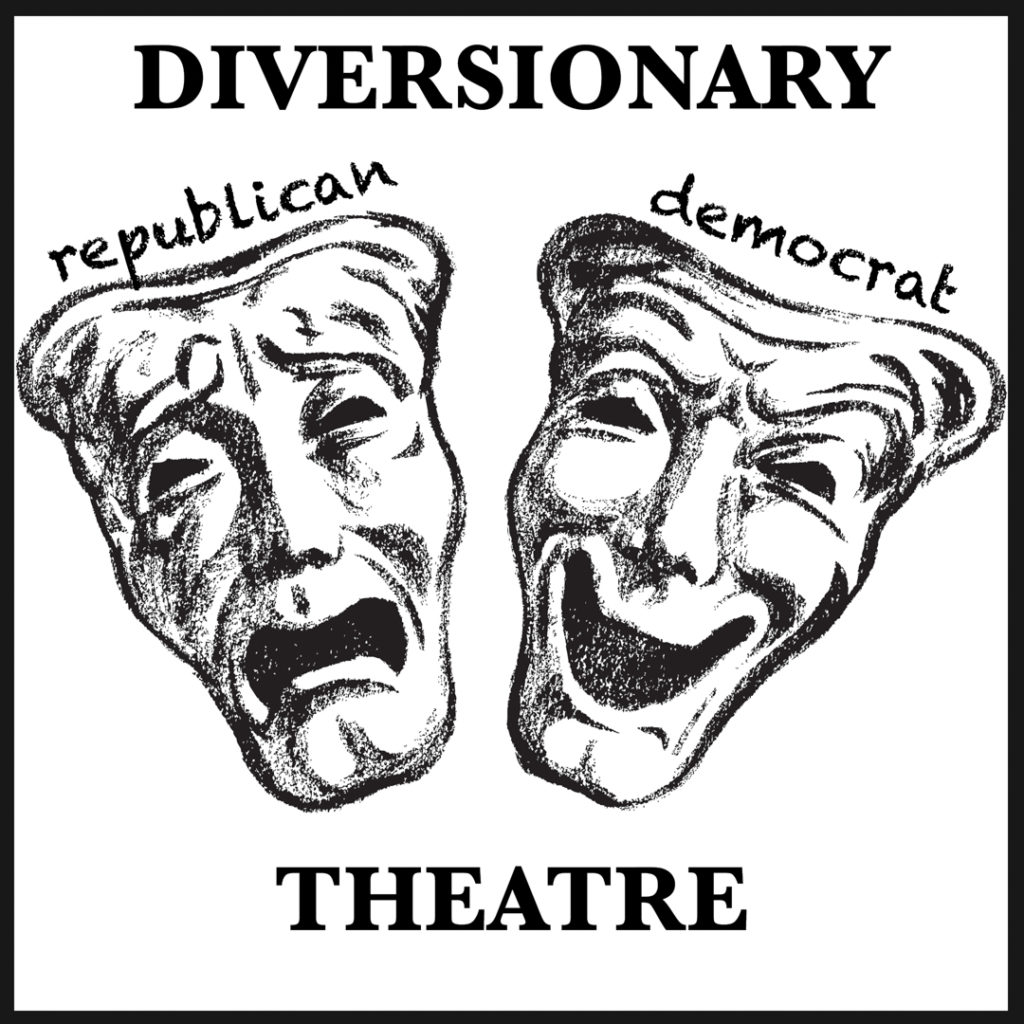
If you invest in neutrality and even handedness and straight news, the audience does not reward you by tuning in every night. If you invest in personalities, strong points of view, criticism, and caricaturing of the other side, the occasional inflammatory or controversial statement, and a clear partisan or ideological bent, then your engagement numbers, ratings, advertising sales, and bargaining power all go up.
Andrew Yang, Forward
Cable news networks had combined revenues of $5.25 billion in 2018, about $3 billion of that coming from cable subscription fees. This is where popularity can drive bargaining power; Fox, with its news, sports, business and FX network, gets a $1.65 share of each subscriber’s monthly ‘cable package’. Andrew has two prescriptions to cure cable news from its polarizing effects:
“Between 1949 and 1987 the Federal Communications Commission (FCC) had a rule—the fairness doctrine—that said broadcasters must present controversial issues of public importance in a way that was honest, equitable, and balanced. In practice, this meant that broadcasters who aired commentary on one side of an issue would then make sure that the other point of view was also represented.”
In 1987 Reagan deregulated the fairness in broadcasting doctrine (“there you go again” Ron).
“Restoring the fairness doctrine would dramatically change the tenor of the coverage on Fox and MSNBC in particular, because they would be forced to introduce more balanced points of view on any issue of public importance or face FCC fines. The FCC could also more rigorously require that segments be labeled either “News” or “Opinion” and require that what is presented as news be objective and free from commentary.”
Andrew’s second proposal is to “ask each site to provide an advertising-free version for users, and then provide users with the funds to make this election if they so choose.” Hulu has already done this successfully; “it has a “free” ad-supported subscription and a paid ad-free version.” Advertising-free offerings in all areas of the media could easily be profitable; unadulterated content has always been preferrable for the majority of consumers.
Publicly Funded Data
In Forward, Andrew was fairly critical of the CDC for their many failures during the pandemic. When the CDC’s coronavirus test kits were all giving ‘false positive’ results, virologist Timothy Stenzel from the Food and Drug Administration was called in to investigate. “He found that the CDC, in violation of its own protocols, had assembled the test kits in a room that also contained coronavirus material leading to contamination. Technicians were strolling in and out of the testing lab without even changing their lab coats. In other words, the CDC had assembled the testing kits in a lab that also housed the coronavirus…If you had to measure the consequences of this failure, it would almost certainly be in tens of thousands of lives and hundreds of billions of dollars of economic value.”

The CDC also had no ability to track data concerning the spread of the virus; their system was so antiquated, they were relying on faxes, phone calls, and spreadsheets sent by email, with people trying to frantically piece it all together. “Some CDC staff members were mortified when a seventeen-year-old in Seattle named Avi Schiffmann managed to compile coronavirus data faster than the agency, creating a website that scraped data in real time from various sources, attracting millions of daily visitors. Other people desperate for data turned to Johns Hopkins University, The Atlantic, or other nongovernmental sources. “If a high schooler can do it, someone at CDC should be able to do it,” said one longtime CDC employee.”
The CDC has spent $50 million on its data infrastructure, the high school kid had spent nothing. The problem here was not funding. “The CDC had plenty of resources—$7 billion a year and some fifteen thousand employees and contractors—yet kept falling on its face.” The government has similar problems when setting up its healthcare website –HealthCare.gov—which wound up costing ten times the initial estimate and still did not work. Andrew the businessman sees that government has a leadership problem; someone needs to be accountable to run the business of government. Because there is no one to blame, no one has incentive to step up.
Meanwhile, government does not hire its people to innovate solutions. As Steve Jobs once said, you should not hire smart people and tell them what to do, “hire smart people so they can tell us what to do.”
The Third Option Take:
The Third Option’s Communication Grid is a publicly-owned platform designed to connect us in various ways; how we manage and utilize this platform will determine its effectiveness. By dividing ourselves into smaller communities, federal government can empower people to manage themselves, through the hub of a National Public Bank Branch, Community Healthcare Network, Community Center, and all other ‘essential needs’ hubs like education, agriculture, transportation, housing, etc.
The federal government, for instance, has around 55,000 Full-Time Equivalent jobs in its Transportation Department alone. In The Third Option plan, we would need 3,300 transportation ‘managers’—one in each community, plus a small staff of people for each community office. These people are responsible for accommodating the transportation needs for everyone in their community and will be surely held accountable for their success or failure in this endeavor. 55,000 nameless and faceless people can hide within a system—not intentionally—but simply because they are not fully in charge of any particular process; merely a cog in the giant wheel that is our current government model.
It’s important to point out that these transportation managers would not be alone, however; through the communication grid, managers would connect to each other, in order to discuss best practices and solve problems together; accountable, but certainly not alone in this process. In an interdependent arrangement, we would of course want everyone to succeed. Think of each ‘hub’—like transportation—as a large franchise, that must deliver its product or service to each community through a small-business model, akin to a Starbucks or a Jack in the Box. No can argue that this model has not been effective. Meanwhile, all of Andrew’s ideas about national and local ‘public’ news, or data collection (which The Third Option has already factored in for its Universal Healthcare) could be easily covered.
Other Great Ideas
When it comes to the negative externalities caused by our chosen way of life, the data is so overwhelmingly clear, it cannot help but lead to many similar diagnoses and prescriptions. Here are some of the similar conclusions Andrew and The Third Option have drawn.
Improving Education: Future Corp
The data shows that two-thirds of our kids’ educational outcomes are determined by many factors outside the school: number of words read to the child when they’re young, parental income, parental time spent with the child, stress levels in the house, quality of neighborhood, and so on. Teachers know this. Imagine being asked to do a very important job when you know that you can control only about one-third of the result.
Andrew Yang, Forward
The Third Option believes all endeavors should be proactively built from the bottom up, planting seeds that reap the benefits everyone wants. Growing Sustainable People is a bottom-up process, which involves several pieces, one of which is equivalent resources in every community (infrastructure, ample employment, essential needs, etc.). Beyond that, however, it is fair to say that all American communities lack the mental health care and education pieces necessary to grow independent people who know how to work interdependently. The Third Option feels that parents need all the help they can get, meaning childcare, daycare, two years of Pre-K, mentoring for young families, and extended school times for kids to have a safe space to grow. Jeffrey Canada’s Harlem Children’s Zone, for example, is a model with many essential components that communities can build on.
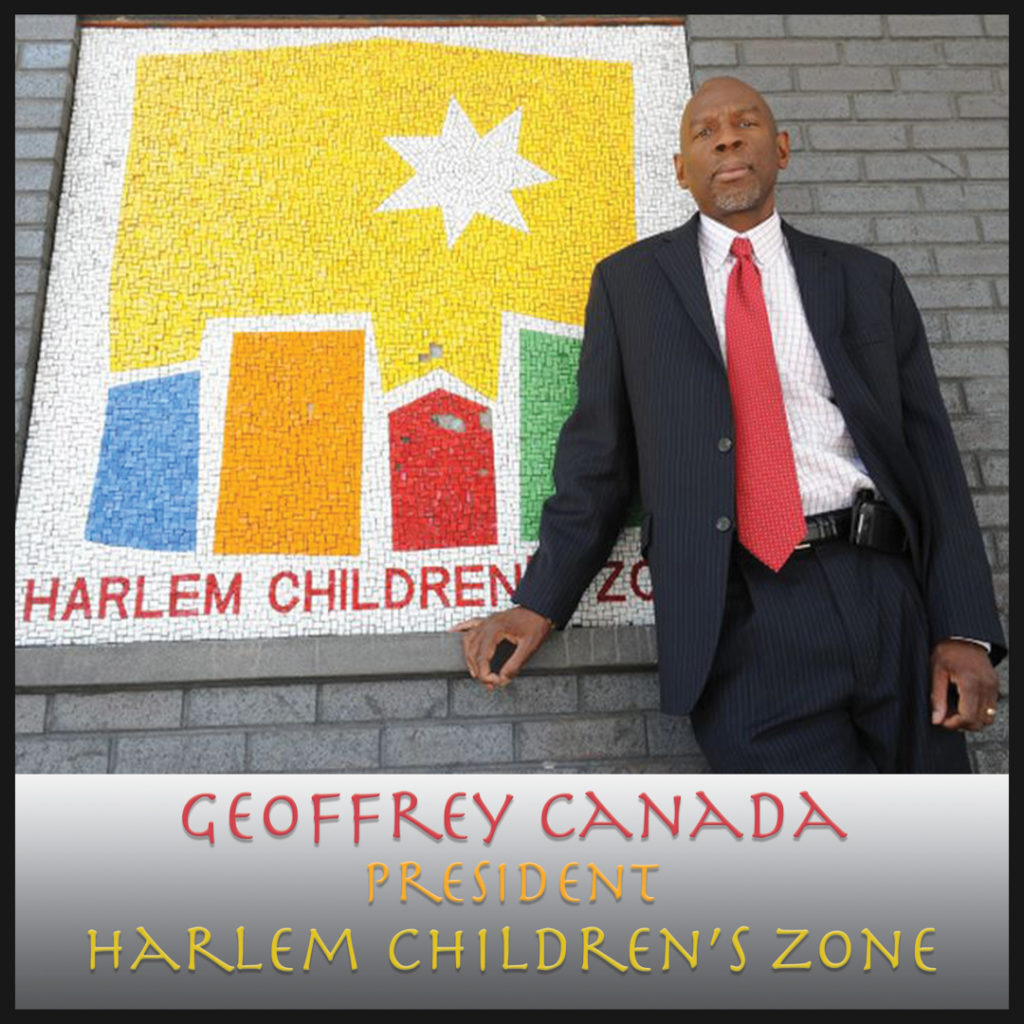
“If you’re a directionless college grad and you say you want to go to law school, your parents will think it’s great, and the government will give you a $100,000 loan, no questions asked. If you say you want to start a business, your parents will think it’s a terrible idea, and no one will give you $100,000 to try anything. That’s why we have thousands of unhappy, indebted law school grads and are short thousands of entrepreneurs.” So true. The Third Option National Public Bank branch in every community would not only be there with small business loans, but the bankers would make sure our investment in you works out for all of us. Unlike a typical bank, these bankers are there to look over your business model, tweak it (if necessary), and help you form a business plan that is sure to be a success. On top of that, Third Option infrastructure loans come with large Community Centers, which among other things will house small retail spaces, pop-up shops, and online ‘Etsy’-like marketplaces where young entrepreneurs can test out their products before heading into a National Bank branch, ready to take on more risk.
After the presidential race was over, and Andrew was toying with the idea of taking the Secretary of Labor position in the new administration, he wrote a memo about a “Future Corps” for American children, “to help young people start their careers in green jobs, infrastructure, elder and adult care, forest care, helping veterans, government, and public service.”
The Third Option version of this is called the Payback Track (the school day would be broken up into various ‘Tracks’ such as Work Tracks, Personal Tracks, Language Tracks, etc.); the concept is to provide each child with 18 years of education at $20k a year, but they would need to ‘pay it back’ through doing work locally, regionally, nationally, and even internationally. Payback tracks involve hands-on training in the ‘essential needs’ fields of education, health care, regenerative and vertical agriculture, communication, green energy, green transportation, housing and construction, water and waste management, etc. Students would end their high school careers with an associate degree in one of these fields, plus a job waiting for them at any time, should their dream job not pan out, or if they are in a transition period between an old American Dream and a new one.
Revenue Day: Making Taxation Less Taxing
“Americans spend 1.7 billion hours and $31 billion a year filing our taxes.” Andrew wants to change the name of Tax Day (usually April 15th) to “Revenue Day”, and make taxation much easier for everyone, by simply letting the IRS do our taxes for us electronically. The government loses $458 billion each year from intentional and unintentional filing errors, then proceeds to spend too much money auditing all of us, only to wind up recovering about $52 billion of this lost revenue (Biden has plans to spend another $8 billion a year to get back an extra $70 Billion, which is still $336 billion short—approximately $400 billion short if we count the money it took trying to recover what was lost).
With the name change, Andrew hopes to put a more celebratory spin on this ‘taxing’ process and remind everyone what “the federal government does for its citizens”. The Third Option wants to call it an ‘Income Investment” and turn federal government into something citizens would want to celebrate.
Meanwhile, let’s make Election Day a holiday as well, so everyone can celebrate their right to vote; not only should we make it mandatory, we should also employ all the open primaries and ranked-choice voting rules for which Andrew is advocating, in order to make each vote count. To help facilitate this process, The Third Option Communication Grid, which already has people’s National Public Bank account attached to it (in order to receive ‘Retirement Dividends’), as well as their Universal Health Care account, could easily secure each of our votes online.
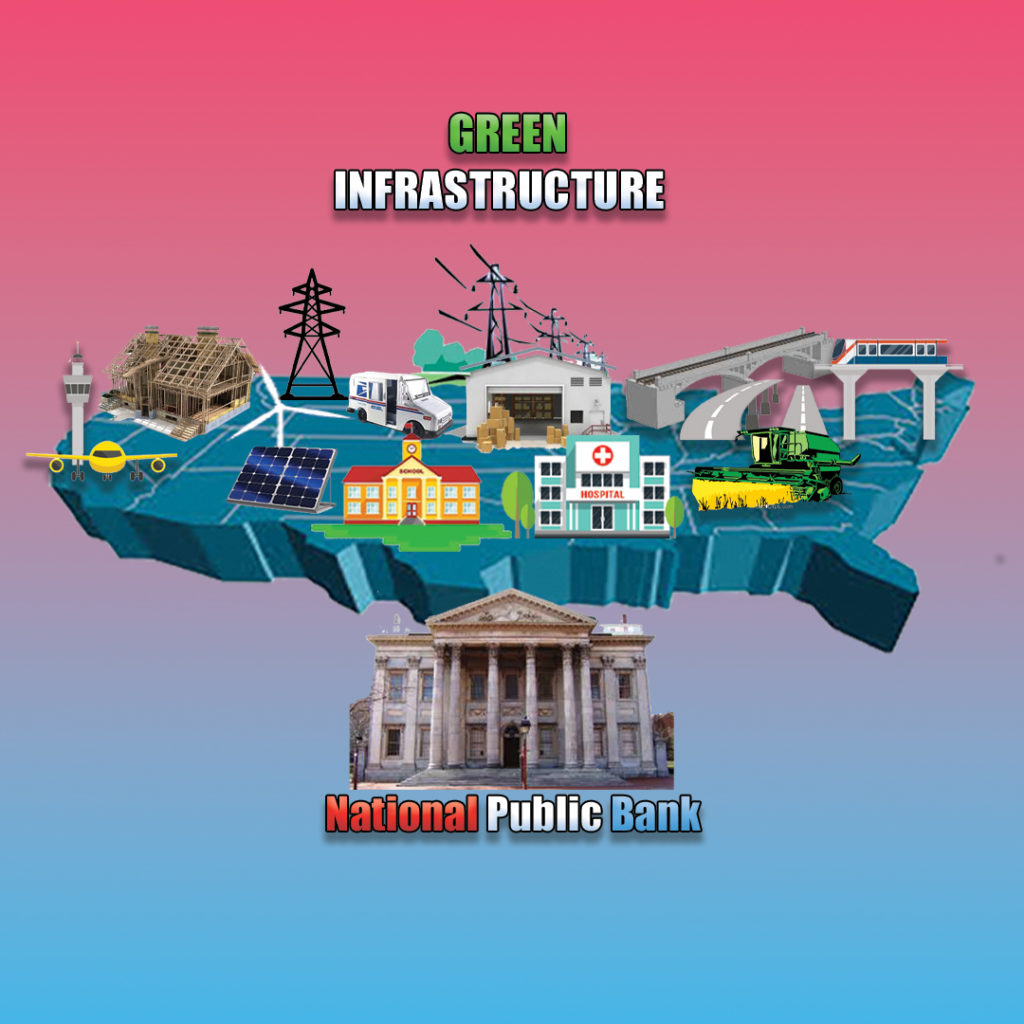
Fixing Infrastructure
Andrew is right in step with The Third Option on infrastructure. Besides the job creation potential, he knows that if we get it right, we can “improve our environmental sustainability.” He has also seen all the data confirming the significant health impacts generated by pollution; The Third Option health taxes address these costs, holding polluters accountable for their share of our new Universal Health Care bill.
He likewise recognizes the opportunity to expand broadband access and affordability, a “necessity for functioning in modern life.” “Almost one-quarter of rural Americans don’t have access to high-speed Internet.” The Third Option Communication Grid would connect all Americans together using high-speed fiber optic cable, which would generate a National Public Bank loan of about $159 Billion, with a yearly mortgage payment of $9.11 Billion, which works out to about $6.29 a month per household for all internet services (the census estimates that there are currently 120,756,048 U.S. households; of course, any maintenance fees after the grid has been installed would need to be added to the price tag).
Improving Mental Health
“Mental health issues at work alone put a $550 billion drag on the economy.”—Andrew Yang
Covid taught us that “tying health care to employment makes zero sense in an environment where millions are not working due to a pandemic…Our employer-based system is derived from a World War II–era decision to implement pay caps that led employers to start offering health insurance as a way to attract workers. Connecting health care to employment never made sense, but we keep doubling down on it, creating a bizarre patchwork system that freezes workers in place or fails to cover them during a transition.” Andrew goes on to assert that nearly 67% of personal bankruptcies “are related to medical costs.” In order to keep whatever health care plan they can secure, people will stay longer in jobs they do not like; “it prevents taking a risk on a move, launching a new career, or starting a small business.” Meanwhile, businesses are redefining what it is to be “employed,” in order to skirt having to pay for anyone’s health insurance. We can no longer rely on the private sector to protect the health of our citizens; we must relieve them from this burden, for the good of everyone involved.
The Third Option Universal Health care is not about making a profit, which is the unhealthy process of attempting to fix people once the system has already broken them. At this juncture in our healthcare awareness, proactive or ‘preventive’ measures are more effective in cost and result. Mental health almost always goes before physical health, which makes ‘preventive care’ almost exclusively mental health care. The Third Option knows health care needs to be there from birth to death, in our homes, in our schools, in our workplaces, and right down in our communities, where it is always within easy reach.
Preventive measures also allow us to target the main causes of physical health issues. Third Option care will be paid for by individual taxes on tobacco and alcohol consumption, pollution, unhealthy foods, and accident insurance on everything from transportation to firearms. Andrew similarly advocates for taxing the unhealthy products we ingest, feeding the health care industry’s four trillion-dollar annual budget.
Ending Police Brutality
“One survey of 280 different law enforcement organizations reported that new recruits received an average of fifty-eight hours on shooting a gun and using deadly force and only eight hours on de-escalating violence. De-escalation is a set of actions to slow down an incident and allow officers more time and distance to peacefully resolve a conflict. Unfortunately, many officers right now are trained to speed up and escalate rather than slow down and de-escalate.” –Andrew Yang, Forward
Andrew wants to demilitarize the police, who have received more than $7.4 billion in surplus military equipment from the Department of Defense under program 1033, which includes “armored vehicles and grenade launchers.” The Third Option agrees with Andrew: send social workers out to help in many of these situations, in order to de-escalate behavior; better yet, send social workers that actually know the people or parties involved. Third Option Health care has this feature built in, as well as installing a ‘peace officer’ program in each community, where federal health care workers can provide a familiar face to residents, and report to the proper channels, depending on the nature of each situation.
Start A Third Party
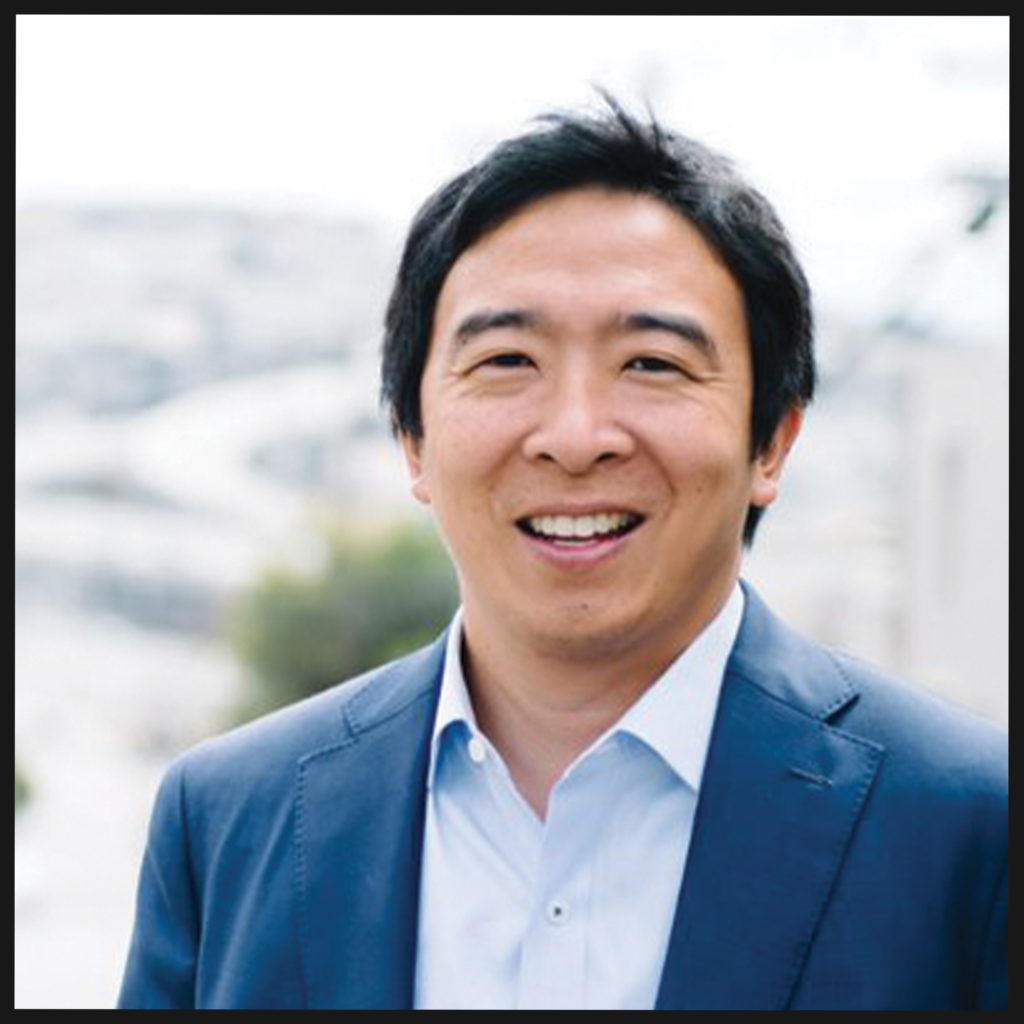
60 percent of Americans say that both political parties are out of touch, while 57 percent say there is a need for a major third party. But the structural forces make it nearly impossible. You can’t win races. You don’t have a capital structure financing you. The media will marginalize, attack, or ignore you. Partisans will say that you are empowering their opponents—whom they will characterize as a toxic threat—to win. You will lose friends who occupy every position of power in the nation. It is nearly impossible to start a viable third party in the United States. You would need a candidate with a national following who could raise tens of millions of dollars and reach people independently. You would need a crisis that woke up millions to the fact that our government is not working for us.
Andrew Yang, Forward
Well, Andrew has certainly put himself in the position he describes. It would be great if independents and other third parties could band together around him, as their agendas are mainly centered around green sustainable solutions, ways to make government smaller and more effective, and the like—policies that everyone can agree upon. The one thing no politician or economists seems willing to address is that our government is not working for us because it is working instead for capitalism; everyone seems ready to fall on their swords for capitalism; religious fervor over it has many politicians and economists speaking in tongues. Andrew calls it ‘Constructive Institutionalism’; “Many smart people are equipped to diagnose structural problems. But when it comes to remedies, they hold back. Suggesting what would actually be necessary to remedy the rot in question would seem dramatic, political, revolutionary, and possibly inflammatory. We are generally conditioned not to go there.”
The Third Option Take:
The story of Oppression is old and getting older all the time. The people bemoaned the King and his many vassals, who controlled the physical land, and thereby exploited the physical labor of the peasants. Next came the robber barons—the “captains of industry”—who “monopolized” the railroads, the oil, and the banks, controlling the fundamental elements upon which the economy operated. Now billionaires own many of the newest platforms, before anyone thought to regulate them: the financial markets that sprung up to circumvent the now-regulated banks, the virtual markets that sprung up to circumvent the now-regulated physical markets, and the new ‘digital media’—the airwaves and ‘intellectual’ space that circumvent the now-regulated physical property. In the end, though, it has always been about owning the platform on which the rest of us live—the ‘means of production’, as we euphemistically call this ‘money for nothing’ tendency sometimes referred to as ‘rent-seeking’.
Capitalists, of course, will say that most ‘rent-seeking’ is legal, therefore we are not allowed to call it that, but ‘legal’ is just another word for ‘as yet unregulated.’ Slavery was once legal. Cocaine in Coca-Cola was once legal. We will never advance as a society until we figure out how one person’s liberty does not have to exist at the expense of another’s. Illegal is no good to us in the end, either, as it implies we are willing to waste our time and money over and over to corral a problem that is never going to go away.
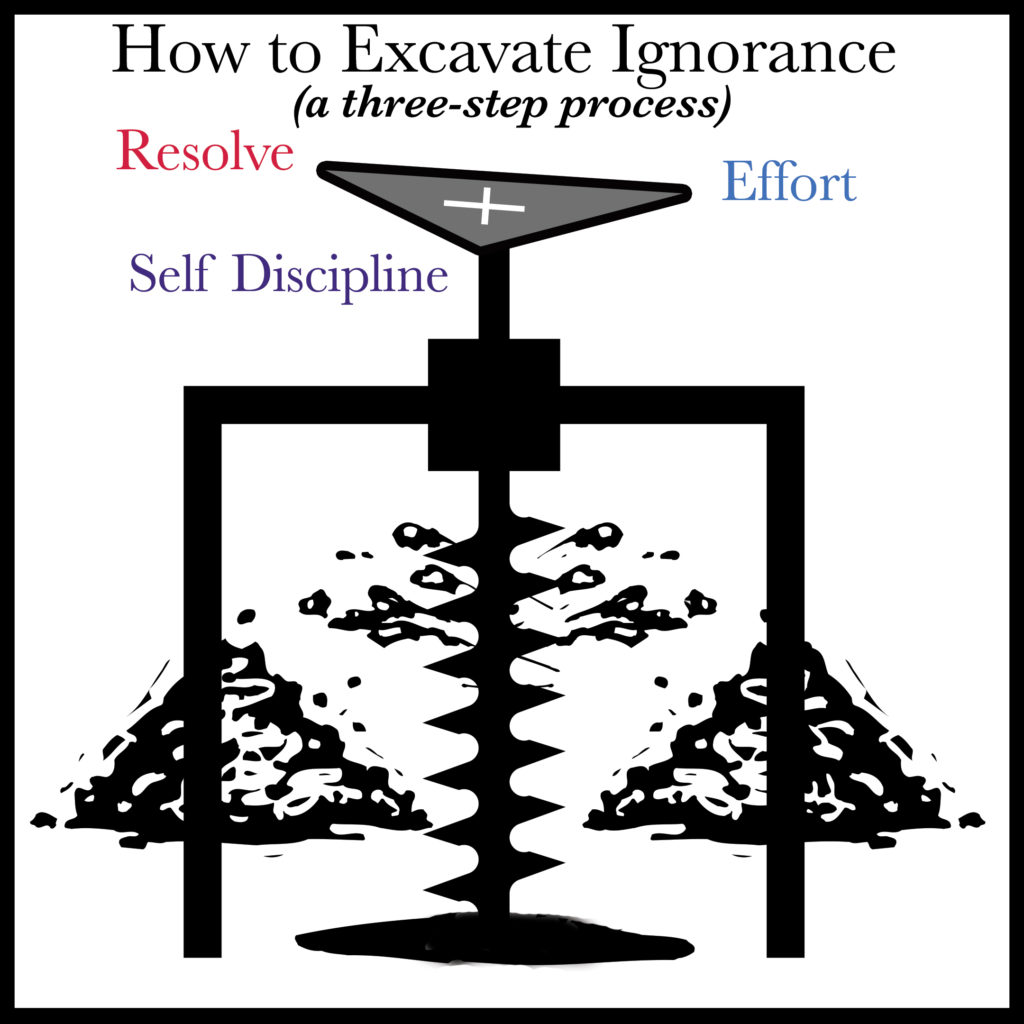
Hint: when some Free Marketeer claims everyone operates with ‘rational self-interest’, by definition they have no idea how you think because they just told you that they only think about themselves, therefore you now know that what they really mean is “I act purely on (‘irrational’) self-interest”. This is fundamentally underdeveloped or child-like behavior, and since these people are adults (who even see regulators as ‘paternal’), we need to finally recognize purely self-interested people as having been deprived of emotional oxygen either during childbirth, or soon thereafter, which has stunted their emotional growth.
60 percent of Americans say that both political parties are out of touch, while 57 percent say there is a need for a major third party. But the structural forces make it nearly impossible. You can’t win races. You don’t have a capital structure financing you. The media will marginalize, attack, or ignore you. Partisans will say that you are empowering their opponents—whom they will characterize as a toxic threat—to win. You will lose friends who occupy every position of power in the nation. It is nearly impossible to start a viable third party in the United States. You would need a candidate with a national following who could raise tens of millions of dollars and reach people independently. You would need a crisis that woke up millions to the fact that our government is not working for us.
Andrew Yang, Forward
The Third Option contends that absolute power has not absolutely corrupt one’s brain, but that the brains of the overly Control-hungry have already been corrupted early on—the “brain damage” was there from the beginning. Some psychopaths become serial killers, while others make excellent CEOs. Until we figure out how to nurture everyone to stop oppressing each other, we need to at least ‘child-proof our house’ a little bit better.
The definition of a society is “the aggregate of people living together in a more or less ordered community.” People come together as a society because it is in their nature to do so; it is healthier for them, more economically effective and efficient, plus a thousand other reasons. For one of us to jump out in front of this process, seeking to materially benefit from the natural agglomeration of people—to in effect become ‘king’ of some natural platform of food or shelter, communication or trade—is the linchpin of oppression; to materially ‘capitalize’ on the natural socio-economic processes of people. The fact that this is legal is simply because those who figured it out first are…well…psychopathic; they have carried the gene of oppressors forward, forcing the rest of us to play the part of the oppressed, until our spines or our frontal lobes develop enough to finally say ‘enough!’
Currently, we are in a Hundred Year’s War with creeping capitalism; at this point in the battle, capitalism has taken over nearly half the government, and continues to advance its privatizing campaigns against social security, health care, education, incarceration, communication, etc., forcing government to fight a war on many fronts. Capitalism’s ‘strategery’ must be commended: it has effectively neutralized government so as to render it completely useless, without fully dismantling it; this has allowed capitalism to ‘legally’ continue advancing on the general population, while the government still operates to collect taxpayer money to fund capitalist bailouts, kickbacks, subsidies, and of course all their infrastructure, which are the arteries and veins upon which the lifeblood of capital flows. This strategy also allows capitalism a place to store all of its (national) debt, in order to keep it off its own books. Finally, the people are still allowed their façade of institutional Democracy, which comforts them and keeps them serving their economic purpose.
The Third Option entreats government to form a legal ‘Trust’ with all of its citizens, and as ‘trustee’ hold all the various forms of property within this ‘Trust’. This would include: 1) the money supply, which is only legitimate because the government ‘Trust’ deems it so; 2) all physical property, which citizens continue to buy and sell as they wish, but now pay a 1% ‘Land Value Tax’ for the right to utilize a piece of United States property (The Third Option sees no use in taxing all private improvements to the land—e.g., property tax). Do not forget that minerals and other resources on or beneath the land are also seen as part of this government Trust, and subject to a 10% cut should any of it be sold;; 3) all infrastructure, which the Trust Fund would continue to build for society, but through a National Public Bank—issuing loans at 4% interest—receive a Return on Investment for all stakeholder in the Trust.
The Third Option supports Andrew Yang in his bid to make society more Certain, Fair, Inclusive and Sustainable for everyone, and hopes he would get behind our prescription for a National Public Bank to absolutely solve every single issue we have, because it is the ultimate checks and balances on Oppression, brought in at the founding of America, but unfortunately buried along with its main advocate, Alexander Hamilton, not coincidentally shot to death by the founder of private banking, Aaron Burr, lately of JP Morgan Chase & Co.
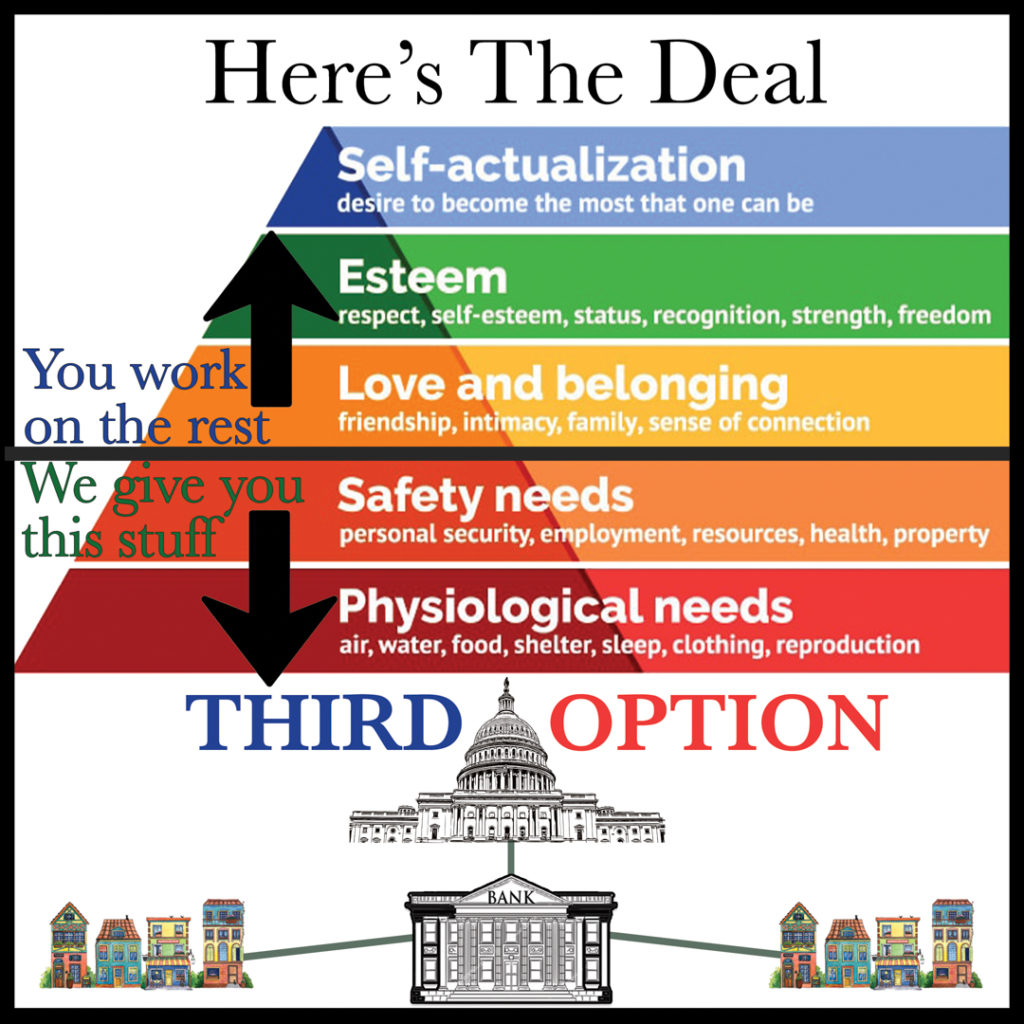
The ‘future’—by definition—is a destination we will never actually reach; what is important to the discussion is what people believe about the future. Some believe we are heading toward it, while others clearly believe it is heading toward us. One belief inspires hope—and thus empowerment—while the other evokes fear and uncertainty—and thus activates our innate drive to Control. We join with Andrew Yang and others to create systems that empower us from the bottom up, and not control us from the top down.
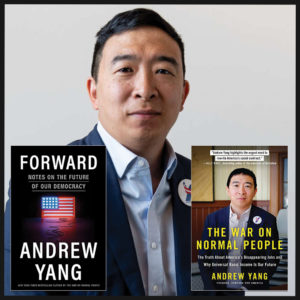
 News We Can Use: Top 6 Takeaways from Paul Krugman
News We Can Use: Top 6 Takeaways from Paul Krugman